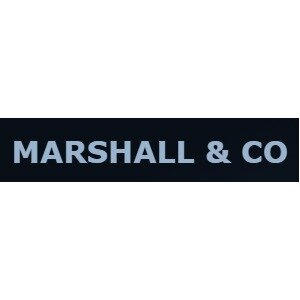Best Tax Lawyers in St John's
Share your needs with us, get contacted by law firms.
Free. Takes 2 min.
List of the best lawyers in St John's, Antigua and Barbuda
About Tax Law in St John's, Antigua and Barbuda:
Tax law in St John's, Antigua and Barbuda governs the taxation system in the country. Taxes are levied on individuals, businesses, and other entities to fund government services and activities. The tax system in Antigua and Barbuda includes income tax, property tax, value-added tax (VAT), customs duties, and other taxes.
Why You May Need a Lawyer:
There are several situations where you may need a lawyer for tax-related matters in St John's, Antigua and Barbuda. Some common reasons include disputes with the tax authorities, tax audits, tax planning for individuals or businesses, tax filing and compliance issues, and seeking advice on tax implications for transactions.
Local Laws Overview:
In St John's, Antigua and Barbuda, the tax laws are primarily governed by the Income Tax Act, the Value Added Tax Act, the Property Tax Act, and other relevant legislation. Tax rates, exemptions, deductions, and compliance requirements are outlined in these laws. It is important to be aware of these laws to ensure compliance and avoid penalties.
Frequently Asked Questions:
1. What is the income tax rate in Antigua and Barbuda?
The income tax rate in Antigua and Barbuda ranges from 10% to 25% based on the income level of the individual. There are also specific tax rates for businesses and other entities.
2. Do I need to pay property tax in Antigua and Barbuda?
Yes, property tax is levied on real property in Antigua and Barbuda. The tax rate is based on the assessed value of the property.
3. How does the Value Added Tax (VAT) system work in Antigua and Barbuda?
VAT is a consumption tax levied on the supply of goods and services in Antigua and Barbuda. The standard VAT rate is 15%, with certain exemptions and zero-rated supplies.
4. What are the key compliance requirements for taxes in Antigua and Barbuda?
Key compliance requirements include timely filing of tax returns, payment of taxes due, maintaining proper records, and responding to tax audits and inquiries from the tax authorities.
5. Can a lawyer help me with tax planning for my business?
Yes, a lawyer can provide valuable advice on tax planning strategies to minimize tax liabilities, maximize deductions, and ensure compliance with tax laws in Antigua and Barbuda.
6. What should I do if I receive a tax assessment from the tax authorities?
If you receive a tax assessment from the tax authorities, it is important to review it carefully and consider seeking legal advice to understand your rights and options for disputing the assessment.
7. Are there any tax incentives available for businesses in Antigua and Barbuda?
Yes, there are various tax incentives available for businesses in Antigua and Barbuda, including tax holidays, investment allowances, and deductions for certain types of investments and activities.
8. How can I appeal a decision of the tax authorities in Antigua and Barbuda?
If you disagree with a decision of the tax authorities, you can file an appeal with the Tax Appeals Board or seek legal representation to challenge the decision in court.
9. What are the penalties for non-compliance with tax laws in Antigua and Barbuda?
Penalties for non-compliance with tax laws in Antigua and Barbuda include fines, interest charges, and other sanctions imposed by the tax authorities. It is important to stay compliant to avoid these penalties.
10. How can I stay informed about changes in tax laws in Antigua and Barbuda?
You can stay informed about changes in tax laws by following updates from the Antigua and Barbuda Inland Revenue Department, consulting with tax professionals, and attending tax seminars and workshops.
Additional Resources:
For more information and assistance with tax matters in St John's, Antigua and Barbuda, you can contact the Antigua and Barbuda Inland Revenue Department or seek guidance from local tax professionals and legal advisors.
Next Steps:
If you require legal assistance with tax matters in St John's, Antigua and Barbuda, it is advisable to consult with a qualified tax lawyer who can provide personalized advice and representation to address your specific needs and concerns.
Lawzana helps you find the best lawyers and law firms in St John's through a curated and pre-screened list of qualified legal professionals. Our platform offers rankings and detailed profiles of attorneys and law firms, allowing you to compare based on practice areas, including Tax, experience, and client feedback.
Each profile includes a description of the firm's areas of practice, client reviews, team members and partners, year of establishment, spoken languages, office locations, contact information, social media presence, and any published articles or resources. Most firms on our platform speak English and are experienced in both local and international legal matters.
Get a quote from top-rated law firms in St John's, Antigua and Barbuda — quickly, securely, and without unnecessary hassle.
Disclaimer:
The information provided on this page is for general informational purposes only and does not constitute legal advice. While we strive to ensure the accuracy and relevance of the content, legal information may change over time, and interpretations of the law can vary. You should always consult with a qualified legal professional for advice specific to your situation.
We disclaim all liability for actions taken or not taken based on the content of this page. If you believe any information is incorrect or outdated, please contact us, and we will review and update it where appropriate.











